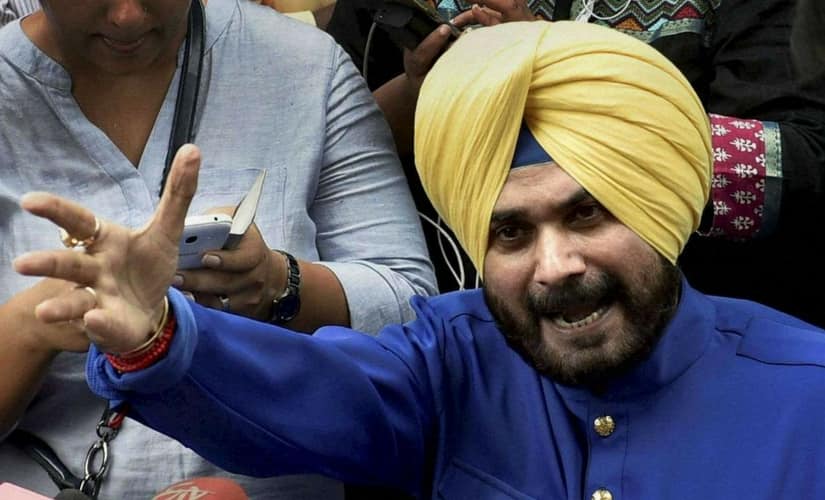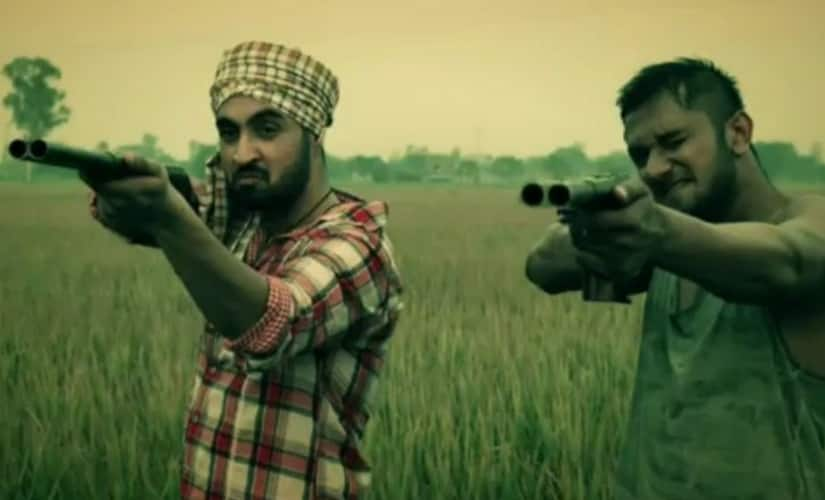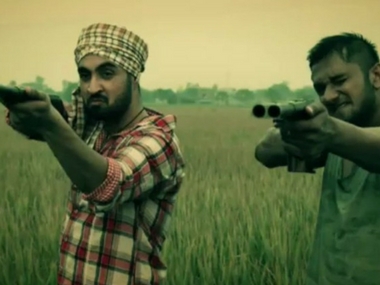Can India ever get its priorities straight? The answer to that question is an obvious no. Punjab’s Congress government, in an act of needless censorship and ridiculous policing, has decided to constitute a Punjab Sabhyachaar Commission. This commission, which will be headed by Punjab Chief Minister Captain Amarinder Singh, will check “obscenity and vulgarity” and the “glorification of drugs and violence” in Punjabi songs. While speaking to the media, Punjab’s Cultural Affairs Minister Navjot Singh Sidhu informed that he will serve as the Vice Chairman of the panel. Surjit Patar, a poet and the chairperson of Punjab Arts Council, has been tasked with preparing a blueprint in two weeks. The Punjab Sabhyachaar Commission will not only monitor, censor, and control lyrical content of Punjabi songs, but will also have the power to register FIRs against those who violate a code of conduct. [caption id=“attachment_4416845” align=“alignnone” width=“825”]  Punjab Cultural Affairs Minister Navjot Singh Sidhu/Image from Twitter.[/caption] On paper, this might seem a good idea. Each one of us have, at some point, cringed at the lyrics in massively popular Punjabi songs. They can be lame, pointless, disastrously lowbrow, and unabashedly misogynistic. But does any of it warrant the state government to step-in and micromanage what a Punjabi pop-star or an over enthusiastic rapper might be singing? The idea to do so not only borders on fascism, but is also completely ineffective. The reason provided by the government for such a drastic step is that they’re looking out for the society. Values and cultural norms are being eroded by the lyrics of certain Punjabi songs and the government, for the citizens’ goodwill, needs to constantly monitor what people are listening to. Patar, while addressing the media, said, “the situation has become such that you cannot watch songs at your house with you children or parents”. This is the cornerstone argument for those in favor of censorship. Should artists stop writing lyrics that comes naturally to them because someone is uncomfortable to watch that song on television with their kids around? Why should everyone who enjoys “obscenity and vulgarity” in music suffer because you’re unable to watch it with your kids? All such arguments are hollow and should be discarded before we start accepting censorship as a brilliant idea. The second most common argument for state censorship is that these lyrics incite sexual harassment, glorify weapons and violence, and celebrate drugs. This argument is both nonsensical and lazy. This is not the first time that music, lyrical content, video games, or violence in movies have been blamed for real-life horrible incidents. Before Punjab came up with the idea to have a separate commission to monitor song lyrics, America grappled with the same problem. In the aftermath of the 1999 Columbine High-School Massacre, the American authorities were quick to find who to blame: Rockers, hip-hop stars, and video games. Eminem was held responsible by the media and the government of influencing young minds which made them go on a shooting rampage. Marilyn Manson was also engulfed into the controversy, and his lyrics were said to be the cause behind impressionable minds turning violent. Shifting the blame onto musicians and rappers is an easy way out. It exonerates the authorities; the people directly responsible for controlling attacks, stopping drug peddling, and keeping a check on gangs. For some reason, we have started to believe that music and movies are nothing but instruments of social change; but that’s not all they are. A songwriter expresses themselves through the lyrics in a song. It may be facetious, futile, light-hearted, purposeless, monotonous, or even completely absurd, but they have the freedom to sing whatever it is that they want to. [caption id=“attachment_4416851” align=“alignnone” width=“825”]  A still from the song Goliyan/Image from YouTube.[/caption] Sure, many would support this archaic and symbolic move by saying that Punjabi songs can be extremely misogynistic and degrades women, and that is certainly true. An extremely popular Punjabi song goes, “Lak 28 kuri da/47 weight kuri da”, and another one says, “_Iski capacity ke charche hain sab mein/__Aire gere ke muh na lagti hai club mein/__Koi chhede toh lagti hai gaali bakkne/_Isko pataane ke tu dekhiyo na sapne”. For some, the first song will be sexist, for others it won’t be. Many others would say that both these songs are sexist. How do you decide what is vulgar and obscene? Will any reference to drugs, without taking into consideration the context, mean the song is vulgar? Will the Commission take into consideration the representation of women in the lyrics of Punjabi songs? If yes, when will a song about a girl, like most Punjabi songs are, be considered vulgar? I’m sure Indian culture will be a measurement for deciding what’s obscene and what’s not, and that is a slippery slope. Which definition of Indian culture do we go by? It’s an oft expressed belief that “sex is against Indian culture”. So will musicians be barred for alluding to sex in their lyrics? This form of puritanism is dangerous. It sets the wrong precedent and gives the government a fickle reason to censor or debar whatever it is they don’t like about a song or a movie. The Diljit Dosanjh and Yo Yo Honey Singh song ‘ Panga’ is a strikingly powerful track about men who are always ready for a fight with guns blazing (Assi rehne aan ni rab kolon dar ke/Gun rakhi di ae golian naal bhar ke). Another track featuring the same artists, ‘ Goliyan’, goes, “Mitran nu shaunk, goliyan chalon da, bai goliyan chalon da, bai goliyan chalon da”. The music video sees the artists brandishing handguns and pistols and rap about their impressive arsenal. It may seem to many that such lyrics should not be written in the interest of the society at large, but what we fail to see is that these songs are not having the terrible impact we believe them to be. We’ve been on this path countless times. Banning a movie about drug use and addiction will not cause a sudden increase in the consumption of drugs among youngsters. Listening to songs about drinking, partying and cars — as egregious as they are — will not deplete the values you believe the Indian society is built on. Singing about gun violence and the pride one feels when they’re part of a gang will not make actual gangs stronger. Imposing censorship is giving false hope that things can be made better without any real, concrete steps based in actual facts. Freedom is not flexible, nor is it indentured to those in power. Freedom is absolute, and artistic freedom is a must. While you may not agree with the lyrics in Punjabi songs, letting the state decide what can and cannot pass should never be an option. We don’t need state sponsored nannies to keep a check on what we’re listening to. Punjab is the first state government to set-up such a commission, and if you want to keep drunk-dancing in nightclubs to a Gippy Grewal or Guru Randhawa song, make sure Punjab is also the last state to do so.
Punjab is the first state government to set-up such a commission. And if you want to keep drunk-dancing in nightclubs to Punjabi songs, make sure Punjab is also the last state to do so.
Advertisement
End of Article


)
)
)
)
)
)
)
)
)



